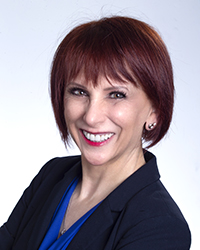A Matter of Principle
A foremost authority on ethics and the law, Professor Nancy Rapoport teaches students to always be mindful of their moral compass

By Paul Szydelko
As a professor and dean at the University of Houston Law Center two decades ago, Nancy Rapoport had a front-row seat for the Enron Corporation scandal and edited (and wrote parts of) three books focused on the Houston-based energy company’s collapse and other corporate fiascos.
What she learned from Enron, which she described as a good community partner that supported the arts and higher education, spurred more research that integrates social sciences where law intersects with business.
“Enron was a company that we all looked up to until we realized what an incredible fraud it was,” Rapoport says. “That shock to the system got me thinking: Why do smart people who have great credentials and a great education make big boneheaded mistakes?”
Now, as the Garman Turner Gordon Professor of Law at the UNLV William S. Boyd School of Law and affiliate professor of business law and ethics at the UNLV Lee Business School, Rapoport is one of three authors of Ethical Lawyering: A Guide for the Well-Intentioned (Wolters Kluwer, 2021). The textbook focuses on the American Bar Association’s model rules of professional conduct, as well as hypotheticals in case law. “Students need more practice understanding statutes, as well as working on problems,” says Rapoport, who hopes the book’s irreverent tone captures their attention.
“Most people don’t go to law school to lie, cheat, and steal,” Rapoport said. “So in the textbook, we focus on how good-natured people can get into trouble.”
In her seminars on corporate scandals, Rapoport frequently asks students to find and dig into newsworthy scandals. Playing roles of general counsel or CEO, students work backward to explore what might have changed the corporate dynamic and what could’ve been done to prevent the problem.
“I like mixing in MBA students with law students because law students are taught to be very risk-averse,” Rapoport says. “In business, students are taught that the only way you make money is by taking risks. So it’s important for both sides to learn each other’s risk tolerances. The best way to do that is to work alongside each other in class.”
Through her research, Rapoport has discovered that corporate scandals can often be predicted by examining the ways in which humans tend to fool themselves. Among them: cognitive dissonance (people talking themselves into committing unethical acts bit by bit); diffusion of authority (not speaking up, assuming someone else will); anchoring (fixating on one factor to the exclusion of all others); and social/peer pressure (conforming to others’ behavior without realizing it).
Rapoport has gleaned additional knowledge about ethics and the law through her work as a court-appointed expert and expert witness. Often, bankruptcy courts ask Rapoport to weigh in on the topic of lawyer fees, with the goal of saving time and, ultimately, money that can be redirected back to creditors. She has reviewed fees in high-profile cases associated with such notable companies as Toys R Us, Caesars Entertainment, Station Casinos, and Zetta Jet.
Besides traditional lectures and researching real-life scenarios, Rapoport also relies on Hollywood to teach her students about potential ethical pitfalls. An aficionado of playwright Aaron Sorkin, Rapoport re-watches all seven seasons of The West Wing every year. She also shows her students the classic comedy My Cousin Vinny, which depicts “a cornucopia of bad ethics.”
“The more my students can envision that they’re going to have to face these [ethical] challenges and the more they learn how to work through them, the better off they’re going to be when faced with a real crisis.”